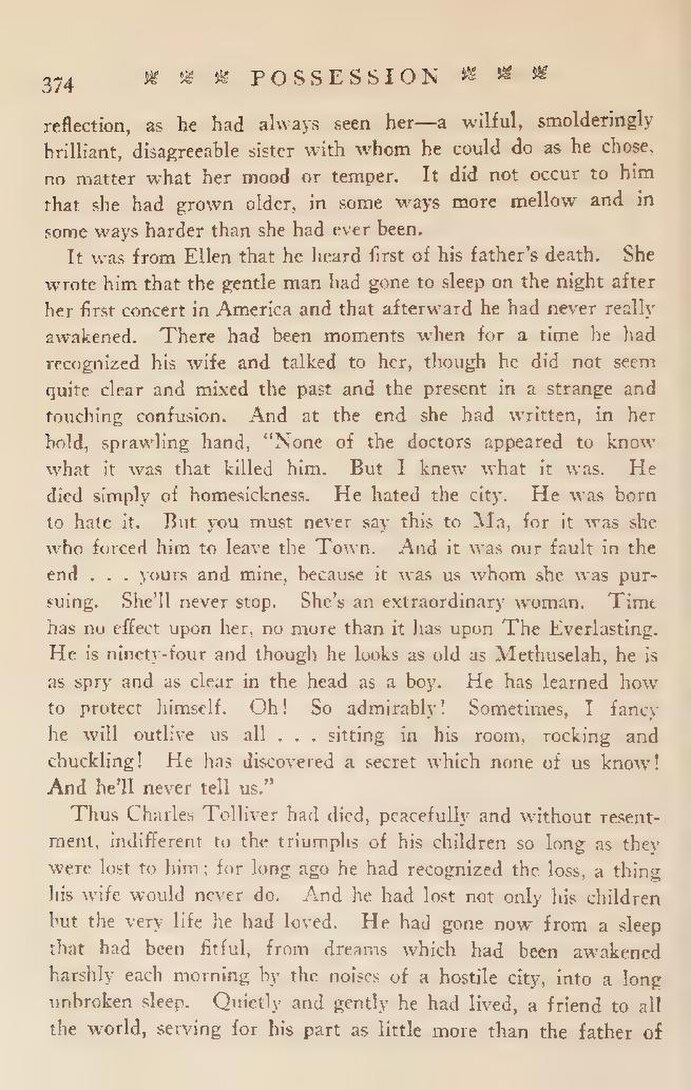reflection, as he had always seen her—a wilful, smolderingly brilliant, disagreeable sister with whom he could do as he chose, no matter what her mood or temper. It did not occur to him that she had grown older, in some ways more mellow and in some ways harder than she had ever been.
It was from Ellen that he heard first of his father's death. She wrote him that the gentle man had gone to sleep on the night after her first concert in America and that afterward he had never really awakened. There had been moments when for a time he had recognized his wife and talked to her, though he did not seem quite clear and mixed the past and the present in a strange and touching confusion. And at the end she had written, in her bold, sprawling hand, "None of the doctors appeared to know what it was that killed him. But I knew what it was. He died simply of homesickness. He hated the city. He was born to hate it. But you must never say this to Ma, for it was she who forced him to leave the Town. And it was our fault in the end . . . yours and mine, because it was us whom she was pursuing. She'll never stop. She's an extraordinary woman. Time has no effect upon her, no more than it has upon The Everlasting. He is ninety-four and though he looks as old as Methuselah, he is as spry and as clear in the head as a boy. He has learned how to protect himself. Oh! So admirably! Sometimes, I fancy he will outlive us all . . . sitting in his room, rocking and chuckling! He has discovered a secret which none of us know! And he'll never tell us."
Thus Charles Tolliver had died, peacefully and without resentment, indifferent to the triumphs of his children so long as they were lost to him; for long ago he had recognized the loss, a thing his wife would never do. And he had lost not only his children but the very life he had loved. He had gone now from a sleep that had been fitful, from dreams which had been awakened harshly each morning by the noises of a hostile city, into a long unbroken sleep. Quietly and gently he had lived, a friend to all the world, serving for his part as little more than the father of
